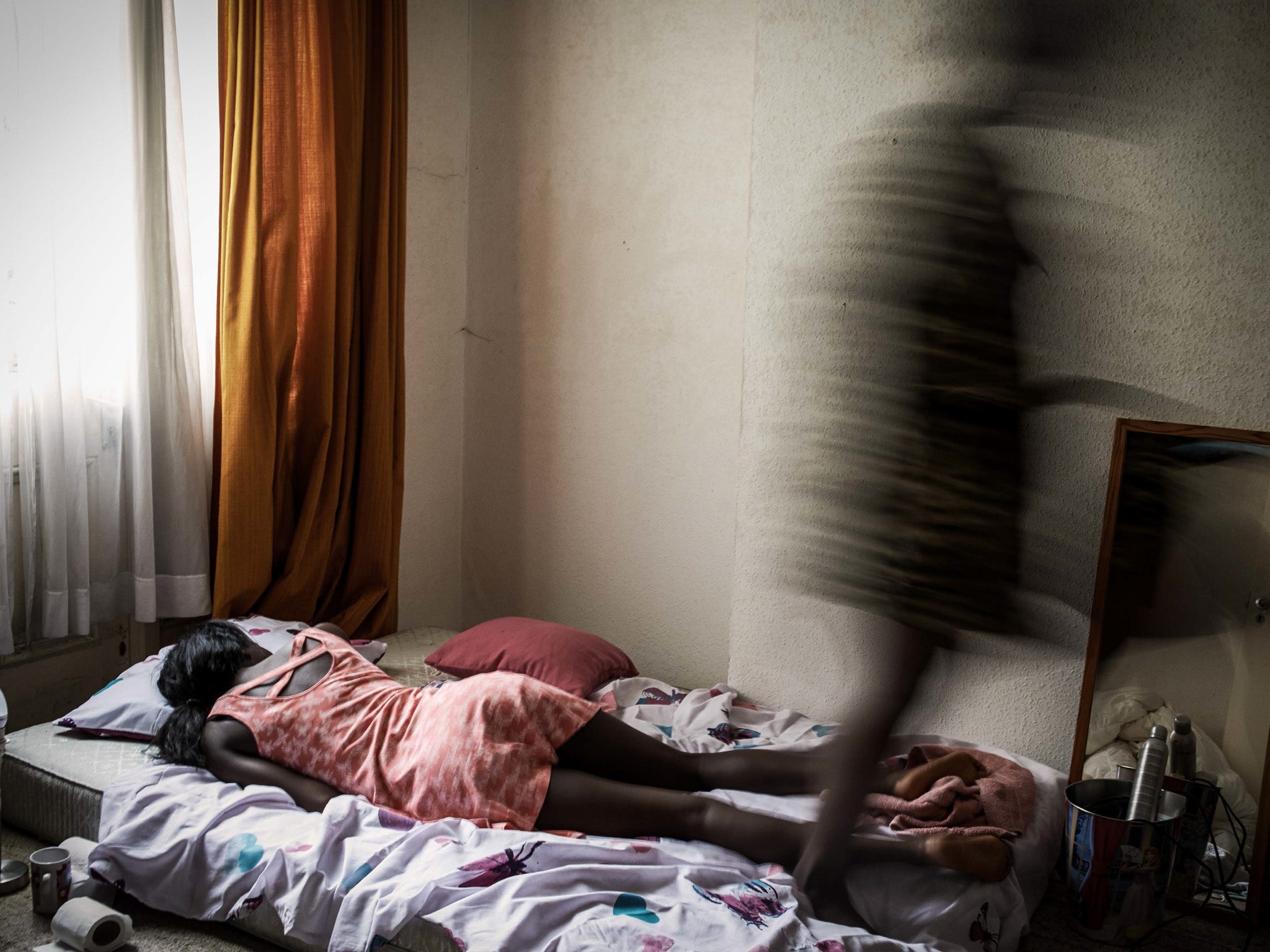The Independent's journalism is supported by our readers. When you purchase through links on our site, we may earn commission.
This is why the Northern Ireland prostitution review is a complete failure
There is a focus on the law – the Nordic model – as the problem, whereas it is the implementation of the law which is the actual weakness


Your support helps us to tell the story
From reproductive rights to climate change to Big Tech, The Independent is on the ground when the story is developing. Whether it's investigating the financials of Elon Musk's pro-Trump PAC or producing our latest documentary, 'The A Word', which shines a light on the American women fighting for reproductive rights, we know how important it is to parse out the facts from the messaging.
At such a critical moment in US history, we need reporters on the ground. Your donation allows us to keep sending journalists to speak to both sides of the story.
The Independent is trusted by Americans across the entire political spectrum. And unlike many other quality news outlets, we choose not to lock Americans out of our reporting and analysis with paywalls. We believe quality journalism should be available to everyone, paid for by those who can afford it.
Your support makes all the difference.Imagine doing research on whether or not smoking cigarettes is a health hazard and requesting data on this from the tobacco industry? Or a major sugar company about dental health? Research published this week on the sex trade in Northern Ireland uses data from Escort Ireland (EI), described once as a “cash cow” for the sex trade in Ireland. The research, by academics from Queen’s University Belfast, is a review of the effectiveness of the law criminalising those who pay for sex.
In 2015, Northern Ireland joined Sweden, Norway, Canada and France and made the purchase of sex a criminal offence. Known as the Nordic model, the aim is to reduce demand for prostitution and break the connection between the sex trade and organised crime. This would also decriminalise the selling of sex so that prostituted people are better able to seek support.
This law shifts the burden of criminality from women – because it is largely women caught in commercial sexual exploitation – onto the punters. But since 2015, the pro-prostitution lobby in Northern Ireland and the Republic have sought to abolish the law.
This is what makes it so shocking that EI was considered to be appropriate to provide much of the data for the research. EI was founded by Peter McCormick, and later owned by his son Mark. Both have been convicted of running brothels in the past. It does not take a genius to realise that EI has a vested interest in getting rid of the law that seeks to deter punters.
Compounding this, the lead researcher has previously expressed their opposition to the law.
Although the overall message from the research is the law tackling demand is good for nothing – in fact a sizeable proportion in their sample said they would change their purchasing habits as a direct result of the law – 27 per cent said they would reduce and 11 per cent would be dissuaded altogether.
Most of the data from “sex workers” came from online surveys, but the relatively small number directly interviewed were mostly British and Irish. This is certainly not representative of the sex trade in either the Republic of Ireland or Northern Ireland, most of whom are thought to be migrant women with very poor English.
Whilst Women’s Aid NI says it is supporting increasing numbers of women trafficked into prostitution, the researchers ignore the issue. There are no interviews with victims of trafficking or the organisations that support them. Indeed, only five out of 177 pages in the report focus on trafficking.
There is a focus on the law as the problem whereas it is the implementation of the law which is the actual weakness. What we really need to see is the Police Service of Northern Ireland to up the enforcement.
“The problems with this report are far too numerous to mention”, says Rachel Moran, author of the best selling book, Paid For: My Journey Through Prostitution, “but the most glaring issue is the public acknowledgement and thanks given for the involvement of Lazarus Trading. We need to pay attention to what Lazarus Trading actually trades in. They are the business architecture of Escort Ireland, which has spent the last twenty years trading in sexual access to women and girls.”
The benefits of the Nordic model are well-documented, but the most compelling evidence is the homicide rate of prostituted women. Under legalisation and decriminalisation of the sex trade, which includes pimping, brothel owning, and paying for sex, far higher numbers of women are killed by pimps and punters. In countries that have adopted the Nordic model, there is only one such homicide on record. The Northern Ireland government should look long and hard at the pitfalls of repealing this law. The only alternative would be to declare itself a pimp state.
Julie Bindel is the author of ‘The Pimping of Prostitution: Abolishing the Sex Work Myth’
Join our commenting forum
Join thought-provoking conversations, follow other Independent readers and see their replies
Comments